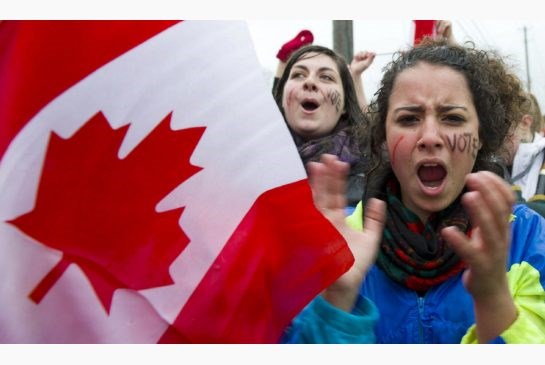I’m a last-time voter: I shan’t vote again.The time left to me biologically has nothing to do with it. I’ve made a fully conscious decision. I should say I won’t vote again.
It was the latest affair with electoral reform that did it for me.
Not that I object to the outcome. I had warned anyone who would listen about the anti-democratic nature of the various formulas suggested as a replacement for the first-past-the-post system.
I’m glad that 61.3 per cent of British Columbians who voted in the referendum showed common sense.
But when my own ballot came in the mail, I tossed it, unopened.
By what right or reason should I, who won’t be around for many more provincial elections, help decide how they should be run?
The next question follows automatically: By what right or reason should I, who contribute nothing to the common weal any more, influence how it should be sustained or limited?
I am but a drone, and my stinger doesn’t sting. I’m no use to our dear queen. The workers must know what’s best for the nest: They build it, it should be up to them to tend its brood, even though they fail in so many ways.
It has been said that with age comes wisdom. Well, up to a point, Lord Copper.
We European immigrants don’t have the respect for our elders that the First Nations have and of which we are trying so hard to disabuse them. And we don’t share that respect with good reason.
In electing our governors, we put our trust in self-made men and, increasingly, women of any age with an abiding admiration for their maker. They don’t need to consult ancients sitting on a bed of spikes half-naked. They don’t need to consult those who still wear togas or frilly aprons.
They’re familiar with the meaning of numbers; with the meaning of words, not so much.
They may subscribe, but not believe.
In this political age, success is the measure of wisdom. Success demands achievement, and many achievements are revealed as mistakes — and public apologies are made.
Present generations, old and young alike, bear the burden of their ancestors. But it’s the young who have the strength, if not the will, to throw it off.
And it’s the young who have the time to make their own mistakes, to apologize and try something else.
So it’s the young who need to become politically engaged, to call the shots instead of downing them in bars.
They need to reject the assumption that problems will work themselves out in the end — not just their own inconveniences, but all the tragedies and suffering in the world beyond tweeting.
They need to realize that professed resolve — like the House of Commons resolution in 1989 to end child poverty in this country by 2000, like aiming at climate targets today — changes nothing.
They need to realize that apologies right no wrongs and often serve as licence to do more collateral harm.
It’s right that young people march, wearing yellow vests, banging pots and throwing stones to protest the follies and extravagances of their governors. It’s right because, in democracies at least, the voters may reflect on what they’ve done and resolve to do better next time.
Trouble is, old folk can be in the way. They tend to get cross, but not all of them with the bad governance that has provoked demonstration.
Most of them find intolerable those who are breaking peace and disrupting order in seeking good government. Constitutionally, that’s un-Canadian.
Perhaps those excitable people who want to change how votes are counted should put their tidy-up minds to addressing how they can be increased among voters in their prime.
Making voting compulsory seems incompatible with democracy, though not as incompatible as declaring losers elected would have been.
Surely there are incentives that can be offered to get out the active Canadian vote: A lottery ticket, happy hours at the nearest bar to polling places, a rude tattoo — nothing should be ruled out.
As one who sat in press galleries during three legislatures and eight parliaments, and assisted the making and unmaking of governments, I’ll probably continue to advise voters what to do.
But on election day, I’ll stand aside and cheer you youngsters on.



